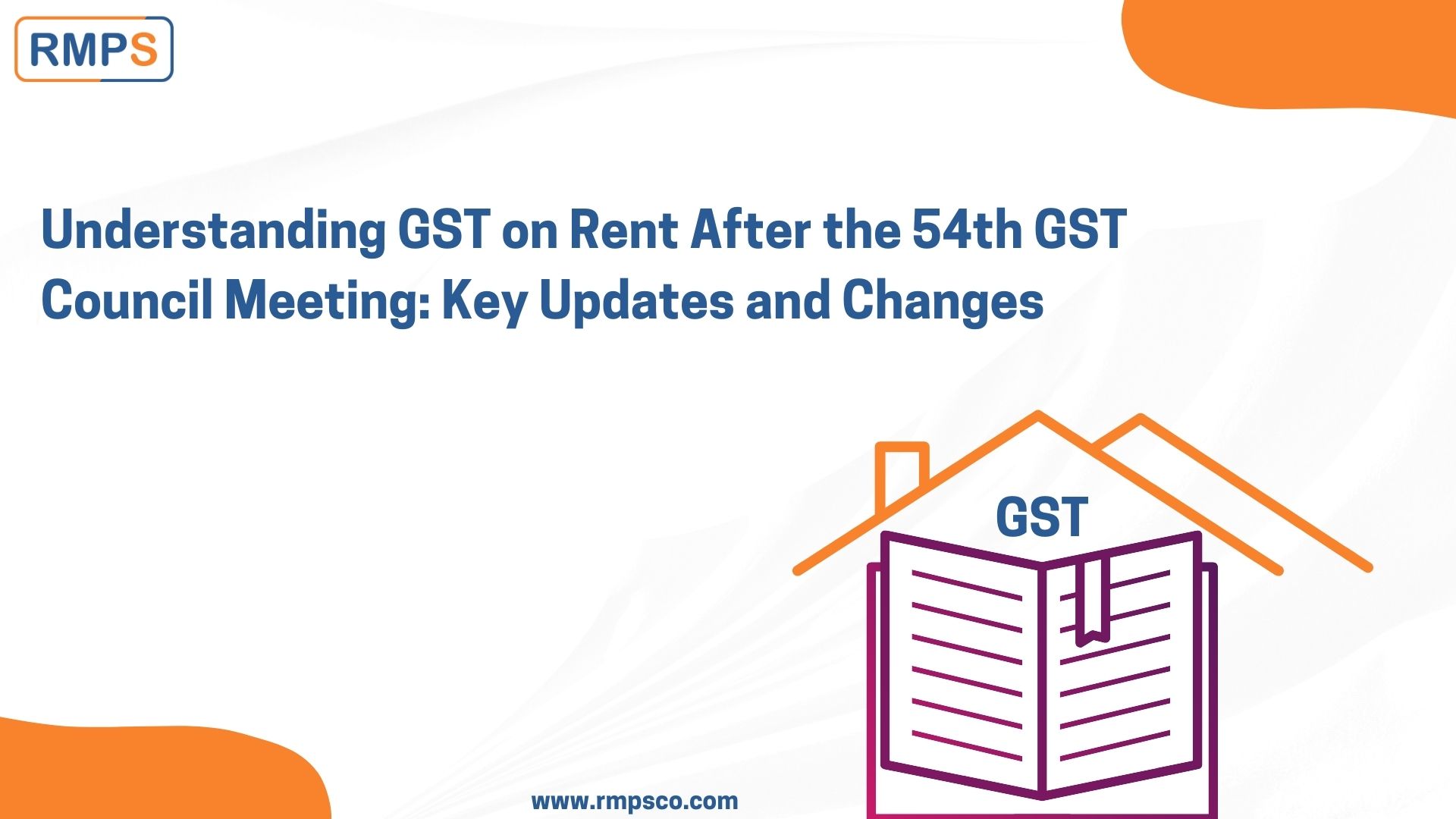
The 54th GST Council Meeting introduced several important updates regarding GST on rent for both commercial and residential properties. These changes impact both landlords and tenants based on their GST registration status. Let’s explore these updates clearly and concisely.
Commercial Property: GST Rules Explained
1. Both Landlord and Tenant Registered
When both the landlord and tenant are registered under GST, the landlord charges GST on rent under the Forward Charge Mechanism (FCM). The landlord collects and remits GST, including it in the rental invoice for the tenant.
2. Registered Landlord, Unregistered Tenant
If the landlord is registered under GST and the tenant is not, the landlord still charges GST on rent under the Forward Charge Mechanism (FCM).
3. Unregistered Landlord, Registered Tenant
In cases where the landlord is unregistered but the tenant is registered under GST, the tenant is required to pay GST under the Reverse Charge Mechanism (RCM). Here, the tenant directly pays GST to the government.
4. Both Landlord and Tenant Unregistered
When neither the landlord nor the tenant is registered under GST, no GST is charged on the rent for commercial properties.
Residential Property: GST Rules Explained
1. Registered Landlord Renting for Residential Purpose
For registered landlords renting out residential properties for residential use, the rent is exempt from GST. This ensures that residential leases for personal use remain free from tax.
2. Registered Landlord Renting for Commercial Use
When a residential property is rented for commercial purposes, the landlord must charge GST under the Forward Charge Mechanism (FCM).
3. Unregistered Landlord Renting for Residential Purpose
For landlords who are not registered under GST and are renting for residential use, the rent is also exempt from GST. This keeps it simple and tax-free for personal purposes.
4. Unregistered Landlord Renting for Commercial Use
In the case of unregistered landlords renting a property for commercial use to a registered tenant, the tenant is responsible for paying GST under the Reverse Charge Mechanism (RCM).
Key Notes from the 54th GST Council Meeting:
- Unregistered to Unregistered (URD to URD) transactions are outside the scope of GST. No GST applies when both parties are unregistered.
- Residential use exemption: Residential properties used for residential purposes remain GST-exempt.
- Expanded RCM scope: Previously, RCM applied only to residential properties. It now covers commercial properties as well.
Conclusion
These GST updates from the 54th GST Council Meeting bring important changes for landlords and tenants. The responsibility for GST depends on whether the landlord and tenant are registered and whether the property is used for residential or commercial purposes.
The expansion of the Reverse Charge Mechanism (RCM) to include commercial properties is a significant shift. By staying updated, landlords and tenants can ensure compliance and smooth rental transactions.
LinkedIn Link : RMPS Profile
This article is only a knowledge-sharing initiative and is based on the Relevant Provisions as applicable and as per the information existing at the time of the preparation. In no event, RMPS & Co. or the Author or any other persons be liable for any direct and indirect result from this Article or any inadvertent omission of the provisions, update, etc if any.
Published on: September 21, 2024
